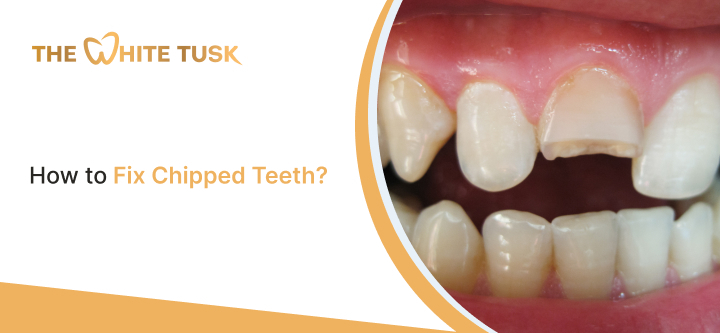
A chipped tooth can happen to anyone, and it’s one of the most common dental problems people face. Whether from an accident, biting into something hard, or simply ageing, a chipped tooth can affect your appearance and oral health. In this blog, we’ll explore the causes of chipped teeth and discuss effective chipped tooth treatments, including both temporary and permanent solutions. From dental bonding to porcelain veneers, we’ll cover the best options to restore your smile and protect your teeth.
A chipped tooth happens when a small portion of the tooth enamel breaks away, revealing the deeper layers of the tooth. The extent and seriousness of the chip can differ. In some cases, a minor chip repair might be all that’s needed, but more serious fractures may require professional attention.
When it comes to fixing a chipped tooth, there are several options available, depending on the severity of the damage. Here are some of the most commonly used and successful solutions.
Dental bonding is one of the most common methods to repair chipped teeth. It involves applying a tooth-coloured resin to the affected area, which is then hardened using a special light. This method is quick, affordable, and requires minimal tooth preparation.
Pros:
Cons:
Porcelain veneers are slim layers of porcelain attached to the front of the teeth to enhance their appearance. They are an excellent choice for those looking for a long-term solution to not only chipped teeth but also discolouration or irregular shapes.
Pros:
Cons:
If the chip is large or affects the tooth’s structure, a dental crown may be necessary. A crown covers the entire tooth, providing strength and protection while restoring its natural appearance. Crowns can be composed of several materials, including porcelain, ceramic, or metal.
Pros:
Cons:
For small chips or minor damage, dental fillings are another option. The procedure is similar to getting a cavity filled, where the dentist applies a filling material to the damaged area.
Pros:
Cons:
In cases where the chip is minor and only involves damage to the enamel, tooth enamel repair may be sufficient. A dentist can smooth out the affected area and apply a protective coating to prevent further damage.
Pros:
Cons:
To avoid future chips or fractures, consider the following tips:
Chipped teeth can be a source of discomfort and insecurity, but there are many ways to repair and restore them. From dental bonding to porcelain veneers and dental crowns, each solution has its advantages and is tailored to different types of damage. Be sure to consult with your dentist to determine the most appropriate chipped tooth treatment based on the severity of the chip and your long-term dental health goals. Cosmetic dentistry has come a long way, offering effective options to restore your smile and boost your confidence.
By understanding the available treatments and taking steps to protect your teeth, you can enjoy a beautiful, healthy smile for years to come.